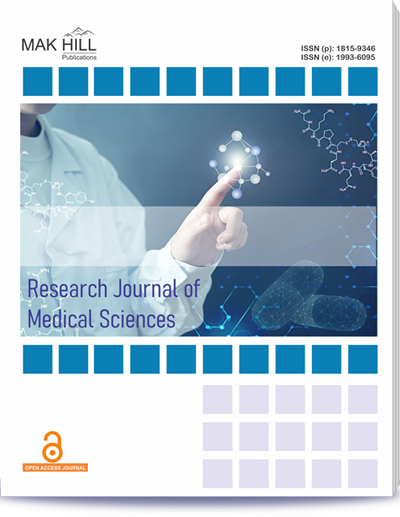
Research Journal of Medical Sciences
ISSN: Online 1993-6095ISSN: Print 1815-9346
176
Views
43
Downloads
An Observational Study of Surgical Management and Outcome of Patients with Pleuropulmonary Tuberculosis in a Tertiary Care Hospital
Rushabh Sureshchandra Maisuria, Tejas Bhulabhai Patel, Mineshkumar Rajendrabhai Chaudhary and Rohit Sisodia
Page: 545-550 | Received 06 May 2024, Published online: 14 Jun 2024
Full Text Reference XML File PDF File
Abstract
In 2022, the WHO reported India, the Philippines the Russian Federation as leading in global MDR‐TB cases, with India accounting for 27%. MDR‐TB resists Rifampicin and Isoniazid, making treatment challenging and successful in only half the cases. Consequently, new treatment options are urgently needed. Historically, lung surgery was a primary TB treatment before antibiotics. Today, due to increasing treatment failures, surgery is reconsidered for specific cases, particularly localized cavitary pulmonary TB. However, surgical evidence remains limited, especially in low‐ and middle‐income countries. This study aims to identify surgical indications, evaluate postoperative outcomes assess the risks and benefits for pleuropulmonary tuberculosis patients. The study was conducted at a tertiary care hospital in South Gujarat from January 2014 to December 2019, involving patients who underwent surgical intervention for MDR‐TB. Patients included were those unresponsive to medical therapy with progressive clinical and radiological findings. Data were collected from hospital records. Postoperative outcomes were assessed at one week and three months, concentrating on symptom improvement and morbidity. A total of 30 patients were studied, predominantly males (76.67%) with a mean age of 28.4 years. Most patients were newly diagnosed cases (73.33%). Radiological findings included hydropneumothorax with a partially collapsed lung (40%) and empyema (26.67%). The majority of operations were decortications (70%). Postoperative follow‐up indicated that 63.33% of patients had no complications, while 10% experienced wound infections and gaping 3.33% required revision surgery. The mortality rate was 3.33%. Surgical intervention for pleuropulmonary tuberculosis can significantly improve patient outcomes, particularly in cases unresponsive to medical treatment. The study underscores the importance of considering patient‐specific factors such as age, nutritional status comorbidities to minimize postoperative risks. A multi disciplinary approach involving surgery, postoperative medical management patient education is crucial for managing complicated tuberculosis effectively.
How to cite this article:
Rushabh Sureshchandra Maisuria, Tejas Bhulabhai Patel, Mineshkumar Rajendrabhai Chaudhary and Rohit Sisodia. An Observational Study of Surgical Management and Outcome of Patients with Pleuropulmonary Tuberculosis in a Tertiary Care Hospital.
DOI: https://doi.org/10.36478/10.36478/makrjms.2024.7.545.550
URL: https://www.makhillpublications.co/view-article/1815-9346/10.36478/makrjms.2024.7.545.550